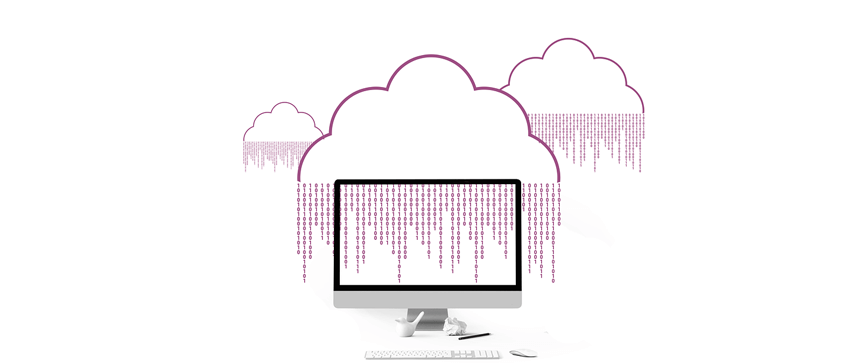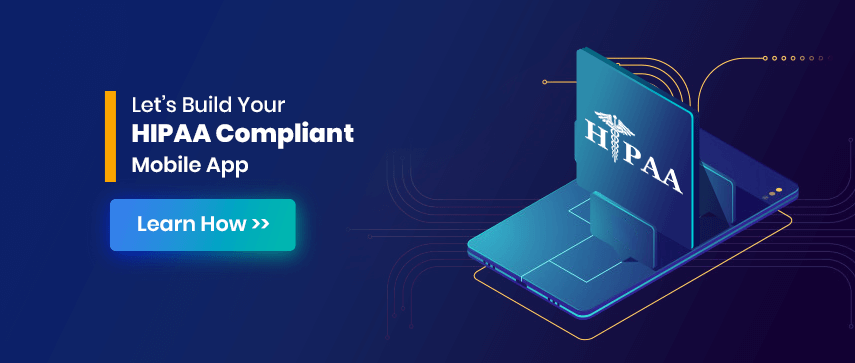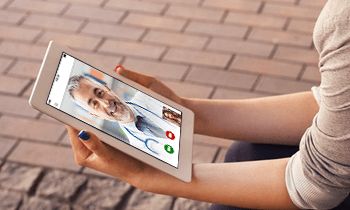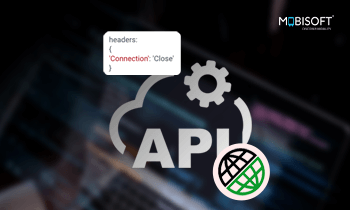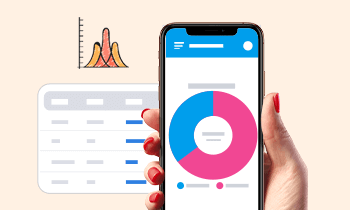The last few years have witnessed an evident increase in the number of mobile applications across app stores. Reports suggest that there are 3,25,000 mHealth apps on the various app stores as of 2017. Of this Android is home to 1,58,000 apps. To bring in authenticity and prevent loss or breach of confidential patient data, mobile health apps are now required to comply with the Health Insurance Portability and Accountability Act (HIPAA). HIPAA compliant Apps safeguard Protected Health Information (PHI).
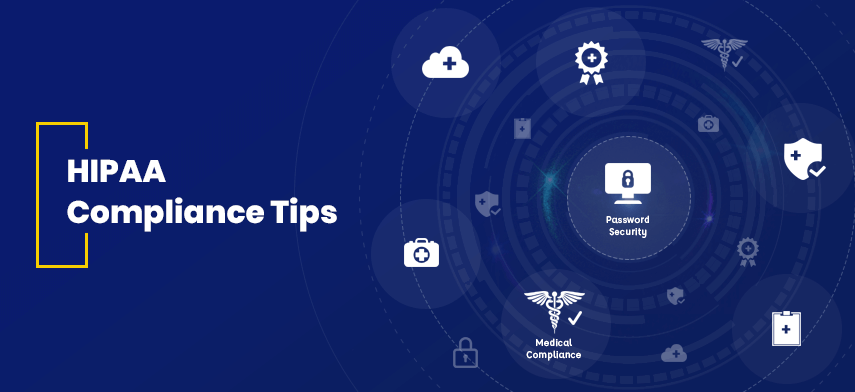
It remains a fact that building HIPAA compliant apps is a demanding endeavor for many technology vendors. Healthcare mobile application development personnel who are unaware of the Privacy policy around mHealth apps may end up delivering a product that falls far short of the stringent norms laid down in the HIPAA act.
Why Is It Important to Abide by HIPAA?
The volume and diversity of mHealth applications are definitely going to increase in the years to come. It makes sense for the technology product development vendor to be well-versed with HIPAA for a healthcare client.
Understanding the legal aspects of a mHealth software application is a must for healthcare app developers in order to grow in this sector and create opportunities that lead to positive outcomes for your application.
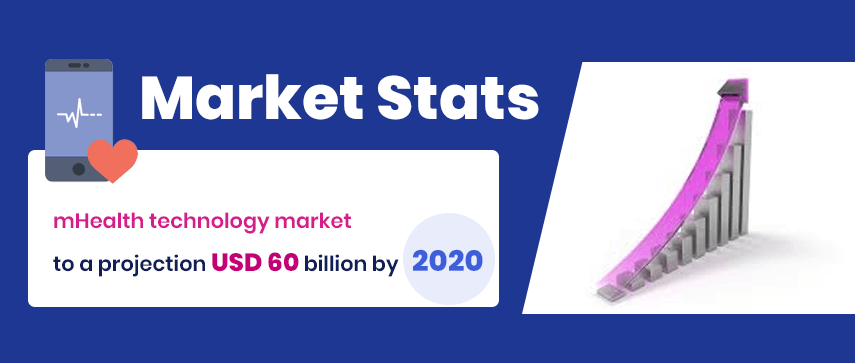
Adding credibility to any business is imperative and adhering to HIPAA does this task for the sensitive healthcare industry. If any company is found to store or transmit PHI contrary to the norms of the Act, it is then liable to repercussions.
This will be applicable even if the healthcare establishment pleads that they weren’t aware of the pre-established norms.
The consequences of the violation of regulations are inescapable. It has become essential to develop HIPAA compliant mobile apps in order to stay protected from such unfavorable consequences.
The Privacy and Security Policy
Two vital aspects determine the level of conformity by a mhealth app – Privacy and security rules.
-
The Privacy Rules:
These rules dictate what detail or information will constitute a PHI. In its truest sense, PHI is any transmittable medical information across any medium and just does not fence itself within the hospitals’ systems or other such care-providing facilities alone.
If you think that only hospitals and institutions from where such data originates will be held accountable then it will be an incorrect fact. Any entity or organization that deals in storage or transmission of such protected information are liable to be held accountable as per HIPAA protocols.
The Privacy Rule bifurcates the entities regulated under HIPAA compliance into two broad categories:
- Covered Entities – Some instances of this type of entity include (1) health plans, (2) health care clearinghouses, and (3) physicians or sources of origination or usage of ePHI.This data transmission needs to be in accordance with transactions as stipulated under the Department of Health and Human Services (HHS).
- Business Associate – Any entity (either individual or legal entity) that stores, procures, maintains, or shares PHI on the behalf of a covered entity.
- The Security Rule:
 The security rule concerns itself with norms that aim to secure PHI. It further breaks down the protection method into three categories. These categories and their roles are simple and easy to comprehend.
The security rule concerns itself with norms that aim to secure PHI. It further breaks down the protection method into three categories. These categories and their roles are simple and easy to comprehend.
-The administrative area of the security rules focuses on access control and training
-The physical category protects actual devices (IT assets, servers, and systems present in actual hardware forms)
-The technical aspect pertains to the actual data within PHI.Now we check out the clauses of security rule and have a detailed look at the highlights. This would give us a fair understanding of the topic at hand:
164.306 Security Standards: General Rules.
General Requirements. Both categories of entities – Covered entities and Business Associates that need to adhere to guidelines as below:
(1) Ensure the confidentiality, integrity, and availability of all ePHI that covered entity or business associate creates, procures, records, or shares.
(2) Safeguard against any reasonably anticipated threats to the security or integrity of the ePHI.
The key question that arises here is “Which threats can be predicted fairly well earlier?” To answer this query, we see one specific clause (clause# 4) that states:
Encryption and Decryption (Addressable). Put in place a set of measures to encrypt and decrypt electronic PHI.
All of what has been said above seems reassuring but the underlying question would be, “would that be strong enough?”, especially when it comes to people and their confidential medical data.
There are minds at work out there constantly wanting to break into systems that possess vital information. When promising protocols like TLS 1.0 prove to be vulnerable to such threats, it comes to mind that nothing can ever perhaps be full-proof.
Considering the vagueness of HIPAA guidelines and its wordings, the parameters that qualify to be termed as ‘sturdy enough’ might just be a superficial official assessment of your specific case.
A Checklist for Mobile App Developers to Conform to HIPAA
This HIPAA compliance checklist is created to show a way to medical app developers. This way, the app they create would successfully fit into the requirements etched out by HIPAA.
Conforming to HIPAA guidelines during mHealth, mobile app development can be a tricky affair. This is why we at Mobisoft run you through the best practices to build the app without falling into non-compliance issues with HIPAA.

- Make Sure That Assigned Roles Are Clear:
- The security protocol for any health care app needs to be adhered to. It should be defined without any ambiguity and be assessed by qualified experts. It will be unwise to assume that regular healthcare app developers would serve as HIPAA experts.
- Considering the nature of the app you would be creating is essential. It is extremely important for you as a healthcare app developer to understand what exactly you are getting into and the severity of it all.
- In addition to HIPAA, you need to see how other regulations come into play during app development and post their deployment. This is crucial to add the trust factor in your app.
- Alleviate Exposure or Risks:
- Prevent the app from storing data that would be otherwise irrelevant. E.g.: if the service you provide does not require the patients’ residential address, you might as well not ask for it.
- Specify a clearly written Privacy policy for the mHealth mobile application.
- One of the simplest (yet unheeded) aspects of strengthening your PHI security is to not store information at all. Avoiding caching PHI spells stronger security solutions
- Before opting for cloud storing, ensure that the mode of transmission and whether its storage on a cloud deployment is safe and secure. Having a Business Associate Agreement with third-party providers helps too.
- Be cautious with geolocational data when making a HIPAA compliant app. Geolocation data regarding a particular patient could threaten to convert otherwise harmless data into PHI.
- Safe Storage and Transmission of Data

- In an era where encryption of data is made simplified and accessible, it is vital to take advantage of such methods and tools. For instance, an iOS app needs to implement App Transport Security (ATS) to facilitate encryption of the data when it is being transmitted.
- Mobile services utilize multiple message transmission protocols (such as MMS or SMS). Make sure that these services do not contain any PHI data, as they are not encrypted.
- It will be a wise move to encrypt data using proven universal standards, rather than creating your own encryption program.
- Secure Your Healthcare Mobile Application:
- In order to enhance security, mHealth apps should feature session timeout in case of prolonged idle time. This helps it to automatically log out after a specified period of inactivity.
- Push notifications are usually cited as weak links to an application. As a HIPAA compliant app developer, you need to make certain that the ePHI is not sent through push notifications.
- Vigilance is of prime importance as data leaks can occur anytime. Covering loose ends like backups and log files is a must. Even memory cards in Android phones are not secured and thus can be prone to hacks.
- Do a Rigorous Security Assessment:
- Application security testing is one of the most widely used methods of truly assessing the security standards of your healthcare app. This type of testing has to be in-built into the testing process of HIPAA compliant mobile app development
- Though there are multiple measures available to execute the app’s penetration tests, if you do not feel sure about it, always resort to expert assistance.
To Sign Off
Abiding by HIPAA rules is absolutely imperative for Healthcare based applications since it deals with patient-related confidential information, and there is no way that can be taken lightly. Adhering to HIPAA prescribed standards ensures safeguarding your application from legal repercussions.
It is evident that a lot of work is needed for a mHealth app to be fully compliant with the HIPAA. A good technology product developer will need to factor in these above points of checklist to make sure that the app that their client uses will eventually enable total protection of the ePHI.
At Mobisoft, our team of experts is always around to help and guide you through your HIPAA adherence process. The HIPAA certified engineers on our team ensure full compliance when crafting healthcare app and software solutions.
Do connect with us to know more about how our HIPAA compliant apps can boost your healthcare operational efficiencies.
Author's Bio

Shailendra Sinhasane (Shail) is the co-founder and CEO of Mobisoft Infotech. He has been focused on cloud solutions, mobile strategy, cross-platform development, IoT innovations and advising healthcare startups in building scalable products.

 The security rule concerns itself with norms that aim to secure PHI. It further breaks down the protection method into three categories. These categories and their roles are simple and easy to comprehend.
The security rule concerns itself with norms that aim to secure PHI. It further breaks down the protection method into three categories. These categories and their roles are simple and easy to comprehend.

